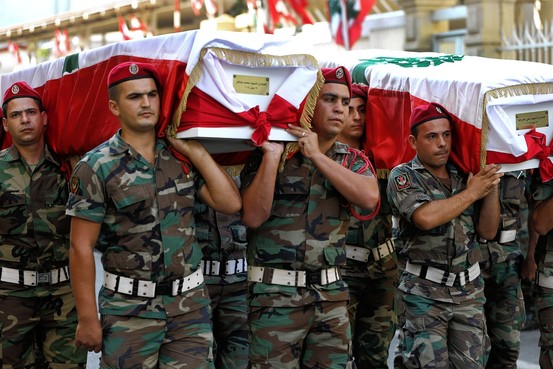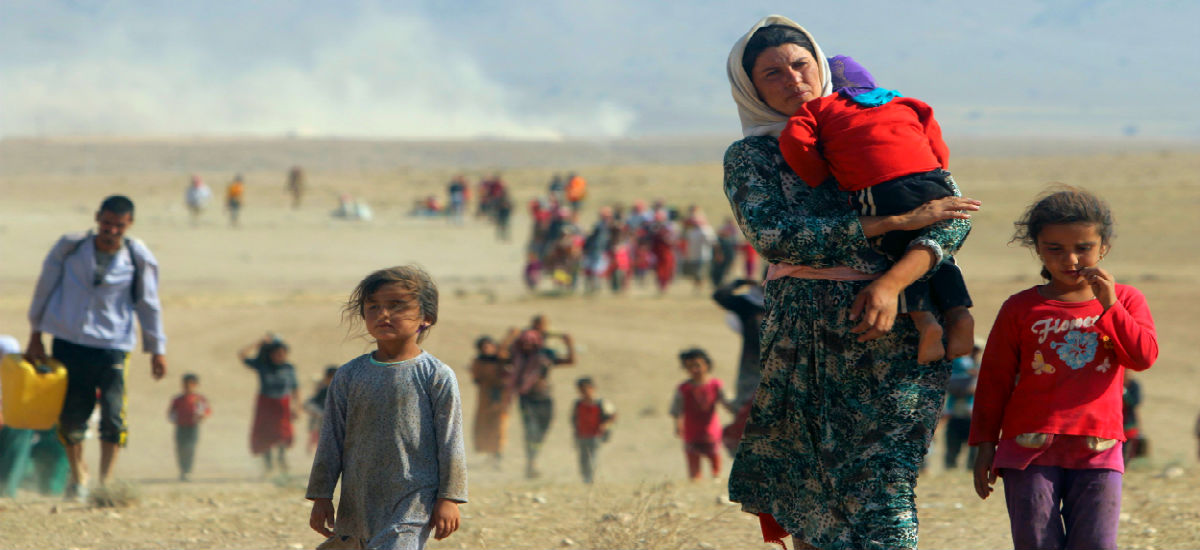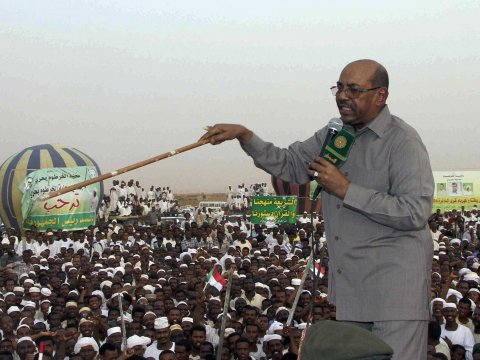Army chief General Jean Qahwaji on Thursday said he expects the eruption of a “new battle” with jihadist militants in the outskirts of the Bekaa border town of Arsal, revealing that the army has “detected” the presence of a terror cell in the northern city of Tripoli. “The Lebanese army has reinforced its deployment on […]
TRIPOLI, Lebanon: Usually swarms of wasps and bees are not seen as a good omen, but the large numbers spotted in coastal areas up north are being hailed by some as a sign of a rainy and snowy winter to come, something Lebanon desperately needs after a year of drought and low rainfall. According to […]

BEIRUT (Reuters) – Islamist militants have released a Lebanese soldier they seized last month from a town at the border with Syria where they have clashed with the Lebanese army, security sources and state media said on Wednesday.
It was not immediately clear why the soldier, identified by Lebanon’s state news agency as Kamal al-Hujairi, had been released. He was seized while visiting his family’s farm near the border town of Arsal last month, the National News Agency said.
Militants are believed to be holding about 15 Lebanese soldiers and 15 other members of the security forces captured during an incursion by gunmen – including some linked to the Islamic State group – into Arsal in August.
Islamic State militants have beheaded two captive soldiers and the al Qaeda-linked Nusra Front has killed another.
The Sunni Muslim militants regularly accuse Lebanon’s army of cooperating with Shi’ite movement Hezbollah — which has sent fighters to aid Syrian President Bashar al-Assad — and want Lebanese authorities to free Islamist prisoners.
(Reporting by Alexander Dziadosz; Editing by Louise Ireland)
Read more about fight of Lebanese Army with ISIS
A message to ISIS – We are Christians and Proud from the Middle-East here to stay

LOS ANGELES, CA (Catholic Online) – The ancient region of Nineveh in Iraq, one of the world’s first Christian enclaves, has been emptied of its Christians. Islamic State terrorists have driven off or murdered the entire city’s population of Christians. Across Iraq other Christians have fled en masse. Canon Andrew White, the only Anglican Vicar in Iraq told the Telegraph "Last week there was no communion in Nineveh for the first time in 2,000 years. All are closed, all their people have run away."
Despite the extreme dangers, Christians are permitted to live in the Islamic State, but only if they pay a punishing tax. All who could flee did so. Christians in other parts of Iraq have also fled, lacking confidence in that nation’s security forces. According to Canon White, only the poor remain, without the means to flee or pay any taxes. Should the Islamic State resume its advance, these people will simply have to choose between conversion and martyrdom. Canon White expressed skepticism to The Telegraph that airstrikes would stop the Islamic State, and that he, along with many others, thought that troops would have to be on the ground to defeat the terrorists. He also acknowledged that nobody would want casualties, so he understands why no troops have been sent.
It isn’t just Canon White who is pessimistic about the future of Christianity in Iraq. A priest named "Father Nawar" was on record in the Christian Post as saying "Christianity is finished in Iraq."

Autocratic regimes in the Middle East are black boxes, and experts constantly disagree over who really moves the levers of power in opaque or compartmentalized authoritarian systems.
Observers can give very different answers to this question — and the answer is sometimes known by only a small handful of regime insiders. When few people really know who’s making the decisions within a place like Iran or Syria, it becomes harder for outside actors to formulate a response to those decisions.
A 30-page internal document obtained and published by researcher, activist, Smith College English professor and Enough Project senior fellow Eric Reeves gives a partial answer to these questions, in one country at least. The minutes of a high-level meeting among security officials in Sudan offers a glimpse into how the sausage is made within one notoriously opaque and deeply problematic Middle Eastern regime.
(On his website, Reeves claims the source of the document is unimpeachable and is firmly standing behind its authenticity. One Sudanese expert contacted by Business Insider said he believes the document is real, although another expressed skepticism about its veracity.)
The document captures the positions of major regime players on various important strategic issues, giving an idea of whose opinion counts — and whose doesn’t. And it places some obscure and shadowy regime figures at the center of the decision-making process, including operatives whose names likely wouldn’t be known to a majority of people inside Sudan itself.



